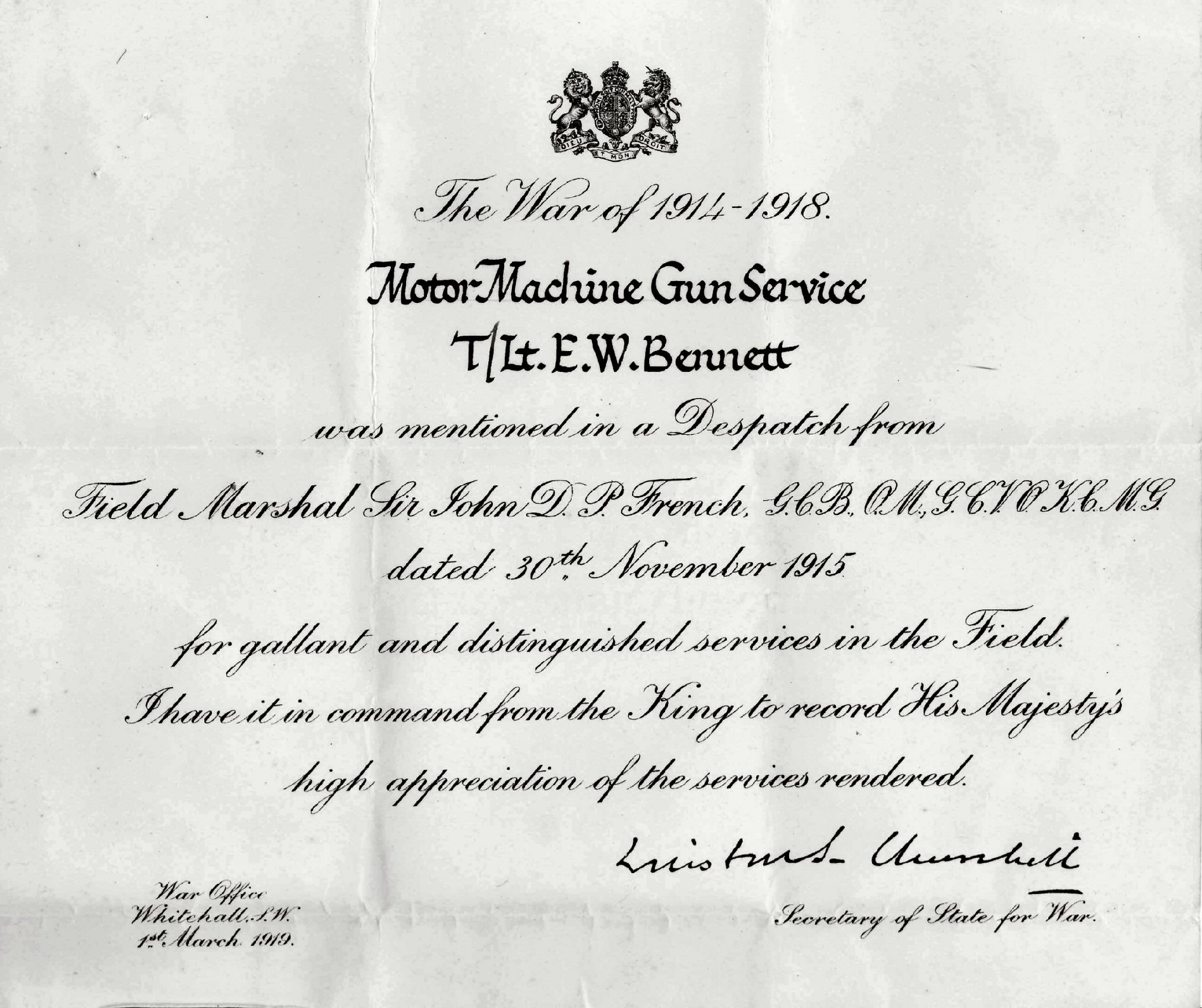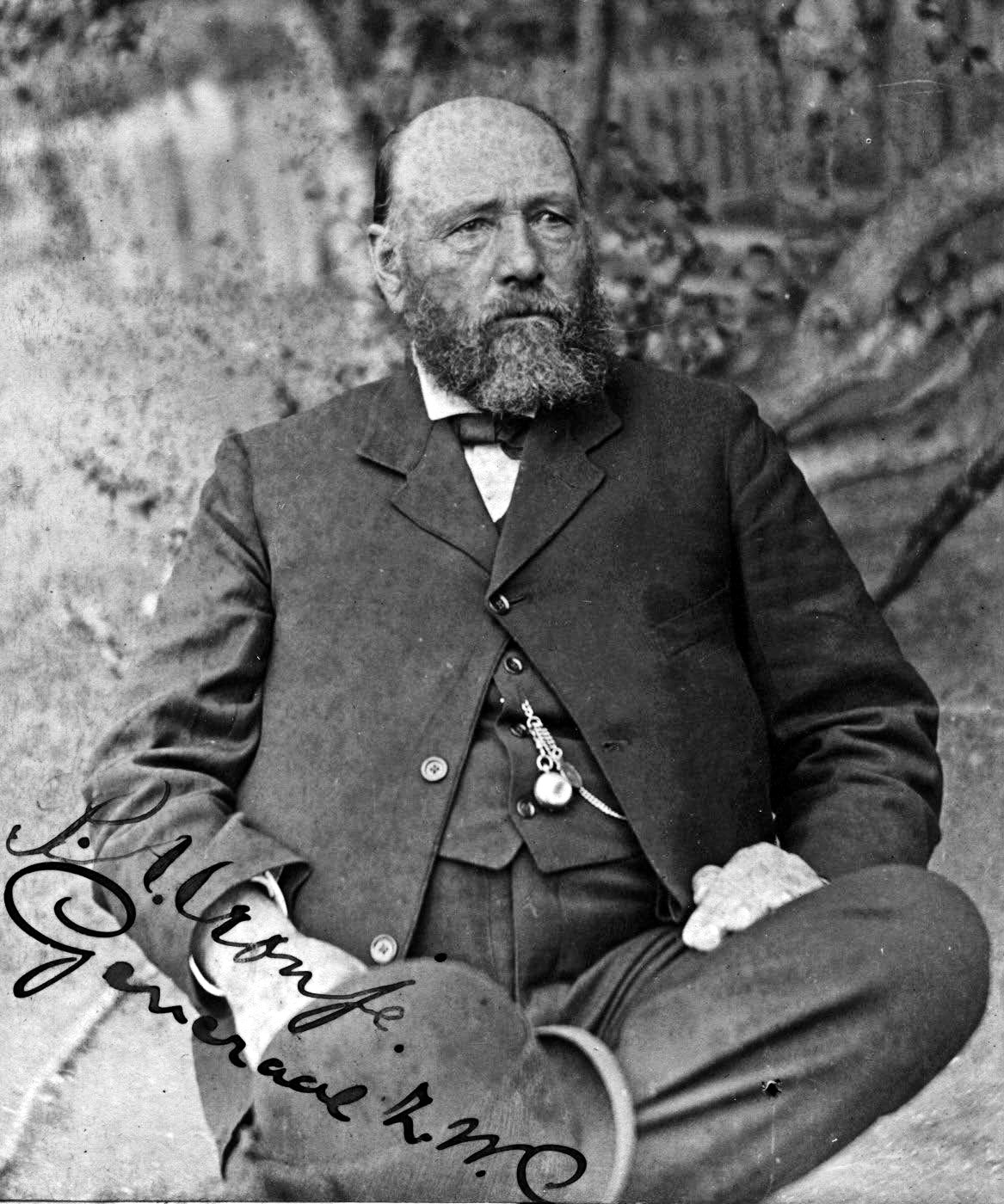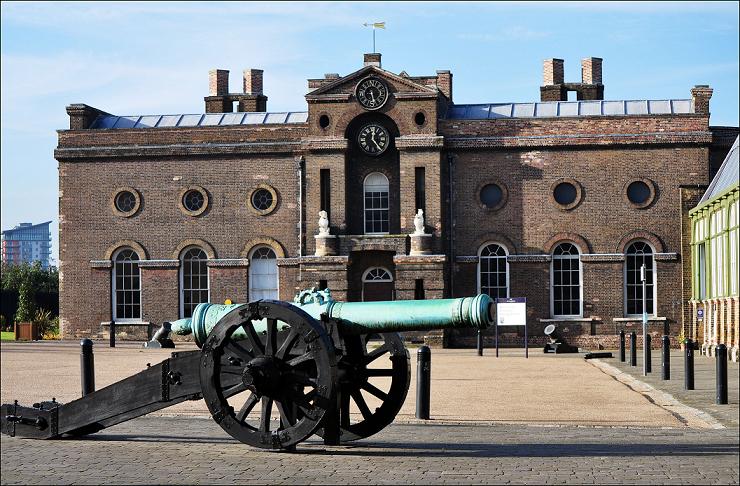|
Archibald Montgomery-Massingberd
Field marshal (United Kingdom), Field Marshal Sir Archibald Armar Montgomery-Massingberd, (6 December 1871 – 13 October 1947), known as Archibald Armar Montgomery until October 1926, was a senior British Army Officer (armed forces), officer who served as Chief of the General Staff (United Kingdom), Chief of the Imperial General Staff (CIGS) from 1933 to 1936. He served in the Second Boer War and in the First World War, and later was the driving force behind the formation of a permanent "Mobile Division", the fore-runner of the 1st Armoured Division (United Kingdom), 1st Armoured Division. Early life and military career His father was Hugh Montgomery (Northern Ireland politician), Hugh de Fellenberg Montgomery, a landowner and Ulster Unionist politician, and his mother was Mary Sophia Juliana May Montgomery (née Maude). The young Montgomery was educated at Charterhouse School, Charterhouse and at the Royal Military Academy, Woolwich, and then was commissioned a second lieute ... [...More Info...] [...Related Items...] OR: [Wikipedia] [Google] [Baidu] |
Field Marshal (United Kingdom)
Field marshal (FM) has been the highest rank in the British Army since 1736. A five-star rank with NATO code OF-10, it is equivalent to an Admiral of the Fleet (Royal Navy), Admiral of the Fleet in the Royal Navy or a Marshal of the Royal Air Force in the Royal Air Force (RAF). A Field Marshal's insignia consists of two crossed batons surrounded by yellow leaves below Tudor Crown (heraldry), the Tudor Crown. Like Marshals of the Royal Air Force and Admirals of the Fleet, Field Marshals traditionally remain officers for life, though on half-pay when not in an appointment or retired. The rank has been used sporadically throughout its history, and was vacant during parts of the 18th and 19th centuries (when all former holders of the rank were deceased). After the Second World War, it became standard practice to appoint the Chief of the General Staff (United Kingdom), Chief of the Imperial General Staff (later renamed Chief of the General Staff (United Kingdom), Chief of the Gen ... [...More Info...] [...Related Items...] OR: [Wikipedia] [Google] [Baidu] |
Mentioned In Despatches
To be mentioned in dispatches (or despatches) describes a member of the armed forces whose name appears in an official report written by a superior officer and sent to the high command, in which their gallant or meritorious action in the face of the enemy is described. In some countries, a service member's name must be mentioned in dispatches as a condition for receiving certain decorations. Being mentioned in dispatches entitles a recipient to wear a small metallic device, but does not include an entitlement to post-nominals. United Kingdom, British Empire and Commonwealth of Nations United Kingdom Servicemen and women of the United Kingdom or the Commonwealth who are mentioned in despatches are not awarded a medal for their actions, but receive a certificate and wear an oak leaf device on the ribbon of the appropriate campaign medal. A smaller version of the oak leaf device is attached to the ribbon when worn alone. Prior to 2014, only one device could be worn on a ribb ... [...More Info...] [...Related Items...] OR: [Wikipedia] [Google] [Baidu] |
Battle Of Paardeberg
The Battle of Paardeberg or Perdeberg ("Horse Mountain", 18–27 February 1900) was a major battle during the Second Anglo-Boer War. It was fought near ''Paardeberg Ford (crossing), Drift'' on the banks of the Modder River in the Orange Free State near Kimberley, Northern Cape, Kimberley (now in Letsemeng Local Municipality, Free State (province), Free State). Paul Methuen, 3rd Baron Methuen, Lord Methuen advanced up the railway line in November 1899 with the objective of relieving the Siege of Kimberley (and the town of Siege of Mafeking, Mafeking, also under siege). Battles were fought on this front at Battle of Graspan, Graspan, Belmont, Battle of Modder River, Modder River before the advance was halted for two months after the British defeat at the Battle of Magersfontein. In February 1900, Field Marshal Frederick Roberts, 1st Earl Roberts, Lord Roberts assumed personal command of a significantly reinforced British offensive. The army of Boer General Piet Cronjé was retre ... [...More Info...] [...Related Items...] OR: [Wikipedia] [Google] [Baidu] |
Battle Of Magersfontein
The Battle of MagersfonteinSpelt incorrectly in various English texts as "Majersfontein", "Maaghersfontein" and "Maagersfontein". ( ) was fought on 11 December 1899, at Magersfontein, near Kimberley, Northern Cape, Kimberley, South Africa, on the borders of the British Cape Colony, Cape Colony and the independent republic of the Orange Free State (now in Sol Plaatje Local Municipality, Northern Cape). United Kingdom, British forces under Lieutenant General Paul Sanford Methuen, 3rd Baron Methuen, Lord Methuen were advancing north along the railway line from the Cape to relieve the siege of Kimberley, but their path was blocked at Magersfontein by a Boer force that was entrenched in the surrounding hills. The British had already fought a series of battles with the Boers, most recently at Battle of Modder River, Modder River, where the advance was temporarily halted. Lord Methuen failed to perform adequate reconnaissance in preparation for the impending battle and was unaware that ... [...More Info...] [...Related Items...] OR: [Wikipedia] [Google] [Baidu] |
Lieutenant (British Army And Royal Marines)
Lieutenant (; Lt) is a junior officer rank in the British Army and Royal Marines. It ranks above second lieutenant and below captain and has a NATO ranking code of OF-1 and it is the senior subaltern rank. Unlike some armed forces which use first lieutenant, the British rank is simply lieutenant, with no ordinal attached. The rank is equivalent to that of a flying officer in the Royal Air Force (RAF). Although formerly considered senior to a Royal Navy (RN) sub-lieutenant, the British Army and Royal Navy ranks of lieutenant and sub-lieutenant are now considered to be of equivalent status. The Army rank of lieutenant has always been junior to the Navy's rank of lieutenant. Usage In the 21st-century British Army, the rank is ordinarily held for up to three years. A typical appointment for a lieutenant might be the command of a platoon or troop of approximately thirty soldiers. Before 1871, when the whole British Army switched to using the current rank of "lieutenant", th ... [...More Info...] [...Related Items...] OR: [Wikipedia] [Google] [Baidu] |
British Raj
The British Raj ( ; from Hindustani language, Hindustani , 'reign', 'rule' or 'government') was the colonial rule of the British The Crown, Crown on the Indian subcontinent, * * lasting from 1858 to 1947. * * It is also called Crown rule in India, * * * * or direct rule in India. * Quote: "Mill, who was himself employed by the British East India company from the age of seventeen until the British government assumed direct rule over India in 1858." * * The region under British control was commonly called India in contemporaneous usage and included areas directly administered by the United Kingdom of Great Britain and Ireland, United Kingdom, which were collectively called ''Presidencies and provinces of British India, British India'', and areas ruled by indigenous rulers, but under British British paramountcy, paramountcy, called the princely states. The region was sometimes called the Indian Empire, though not officially. As ''India'', it was a founding member of th ... [...More Info...] [...Related Items...] OR: [Wikipedia] [Google] [Baidu] |
Royal Military Academy, Woolwich
The Royal Military Academy (RMA) at Woolwich, in south-east London, was a British Army military academy for the training of Officer (armed forces), commissioned officers of the Royal Artillery and Royal Engineers. It later also trained officers of the Royal Corps of Signals and other technical corps. RMA Woolwich was commonly known as "The Shop" because its first building was a converted workshop of the Royal Arsenal, Woolwich Arsenal. History Origins in the Royal Arsenal An attempt had been made by the Board of Ordnance in 1720 to set up an academy within its Arsenal (then known as the Warren) to provide training and education for prospective officers of its new Royal Regiment of Artillery, Regiment of Artillery and Corps of Royal Engineers, Corps of Engineers (both of which had been established there in 1716). A new building was being constructed in readiness for the Academy and funds had been secured, seemingly, through investment in the South Sea Company; but the latter's col ... [...More Info...] [...Related Items...] OR: [Wikipedia] [Google] [Baidu] |
Charterhouse School
Charterhouse is a Public school (United Kingdom), public school (English independent boarding school for pupils aged 13–18) in Godalming, Surrey, England. Founded by Thomas Sutton in 1611 on the site of the old Carthusian monastery in Charterhouse Square, Smithfield, London, Smithfield, London, it educates over 1000 pupils, aged 13 to 18 years. Charterhouse is one of the original nine English Public school (United Kingdom), public schools reported upon by the Clarendon Commission in 1864 leading to its regulation by the Public Schools Act 1868. Charterhouse charges full boarders up to £47,535 per annum (2023/2024). It educated the British Prime Minister of the United Kingdom, Prime Minister Lord Liverpool and has List of Old Carthusians, multiple notable alumni. History In May 1611, the London Charterhouse came into the hands of Thomas Sutton (1532–1611) of Knaith, Lincolnshire. He acquired a fortune by the discovery of coal on two estates which he had leased near Newc ... [...More Info...] [...Related Items...] OR: [Wikipedia] [Google] [Baidu] |
Ulster Unionist
The Ulster Unionist Party (UUP) is a unionist political party in Northern Ireland. The party was founded as the Ulster Unionist Council in 1905, emerging from the Irish Unionist Alliance in Ulster. Under Edward Carson, it led unionist opposition to the Irish Home Rule movement. Following the partition of Ireland, it was the governing party of Northern Ireland between 1921 and 1972. It was supported by most unionist voters throughout the conflict known as the Troubles, during which time it was often referred to as the Official Unionist Party (OUP). Under David Trimble, the party helped negotiate the Good Friday Agreement of 1998, which ended the conflict. Trimble served as the first First Minister of Northern Ireland from 1998 to 2002. However, it was overtaken as the largest unionist party in 2003 by the Democratic Unionist Party (DUP). As of 2022 it is the fourth-largest party in the Northern Ireland Assembly, after Sinn Féin, the DUP, and the Alliance Party. Since August ... [...More Info...] [...Related Items...] OR: [Wikipedia] [Google] [Baidu] |
Hugh Montgomery (Northern Ireland Politician)
Hugh de Fellenberg Montgomery (1844–1924) was an Ulster Unionist Party member of the Senate of Northern Ireland from 1922 until his death in 1924. He was the son of Hugh Severin Montgomery of Leamington Spa, Warwickshire and educated at Christ Church, Oxford, graduating BA in 1868. His father died the year he was born and he inherited his Blessingbourne estate near Fivemiletown, County Tyrone. There he rebuilt Blessingbourne House, which was started soon after his marriage and completed in 1874. The architect was Frederick Pepys Cockerell and the house has an Elizabethan look. He was a magistrate and Deputy Lieutenant of Tyrone and appointed High Sheriff of Fermanagh for 1871 and High Sheriff of Tyrone for 1888. He participated as an Ulster delegate to the 1917–18 Irish Convention. Among his sons were the civil servant and diplomat Sir Hubert Montgomery, General Hugh Maude de Fellenberg Montgomery, and Field Marshal Archibald Montgomery-Massingberd Field marshal (Unit ... [...More Info...] [...Related Items...] OR: [Wikipedia] [Google] [Baidu] |
Group Portrait Of Officers At The British Army Staff College, Camberley, 1906
A group is a number of persons or things that are located, gathered, or classed together. Groups of people * Cultural group, a group whose members share the same cultural identity * Ethnic group, a group whose members share the same ethnic identity * Religious group (other), a group whose members share the same religious identity * Social group, a group whose members share the same social identity * Tribal group, a group whose members share the same tribal identity * Organization, an entity that has a collective goal and is linked to an external environment * Peer group, an entity of three or more people with similar age, ability, experience, and interest * Class (education), a group of people which attends a specific course or lesson at an educational institution Social science * In-group and out-group * Primary, secondary, and reference groups * Social group * Collectives Philosophy and religion * Khandha, a Buddhist concept of five material and mental factors ... [...More Info...] [...Related Items...] OR: [Wikipedia] [Google] [Baidu] |







